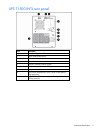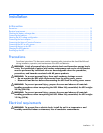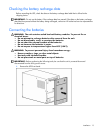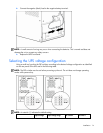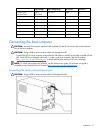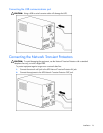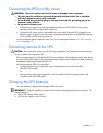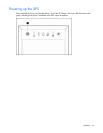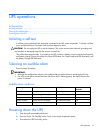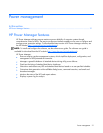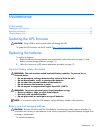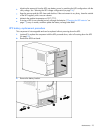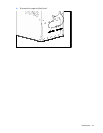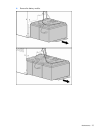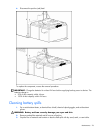
UPS operations 19
UPS operations
In this section
Initiating a self-test.................................................................................................................................. 19
Silencing an audible alarm...................................................................................................................... 19
Powering down the UPS.......................................................................................................................... 19
Initiating a self-test
A self-test can be performed with equipment connected to the UPS output receptacles. To initiate a self-test,
press and hold the Mute/Test button until the alarm beeps two times.
CAUTION: Do not unplug the UPS to test the batteries. This action removes safe electrical grounding and
can introduce a damaging surge into the network connections.
The self-test lasts approximately 10 seconds as the UPS switches to battery power to test the load capacity
and battery charge. During the self-test, the Power LED flashes, the Output Load Level LED illuminates, and
the Battery Charge LED illuminates.
Silencing an audible alarm
Press the Mute/Test button.
IMPORTANT:
• Although the audible alarm silences, the condition that caused the alarm to sound might still exist.
• If a utility power failure caused the alarm (the Power LED is flashing green), the alarm silences after
power is restored.
Audible alarm conditions
Alarm type Condition Audible alarm
Can alarm be
silenced?
Normal UPS operating from utility power No audible alarm N/A
UPS on battery UPS operating on battery power On–four short beeps Yes
Shutdown imminent Batteries nearly out of power On–continuous Yes
Battery problem Batteries must be recharged On–intermittent beeps Yes
Overload UPS power capacity exceeded On–continuous Yes
Powering down the UPS
1. Shut down all connected load devices.
2. Press the Power On/Standby button. Power to the output receptacles ceases.
3. Disconnect the UPS from utility power.



